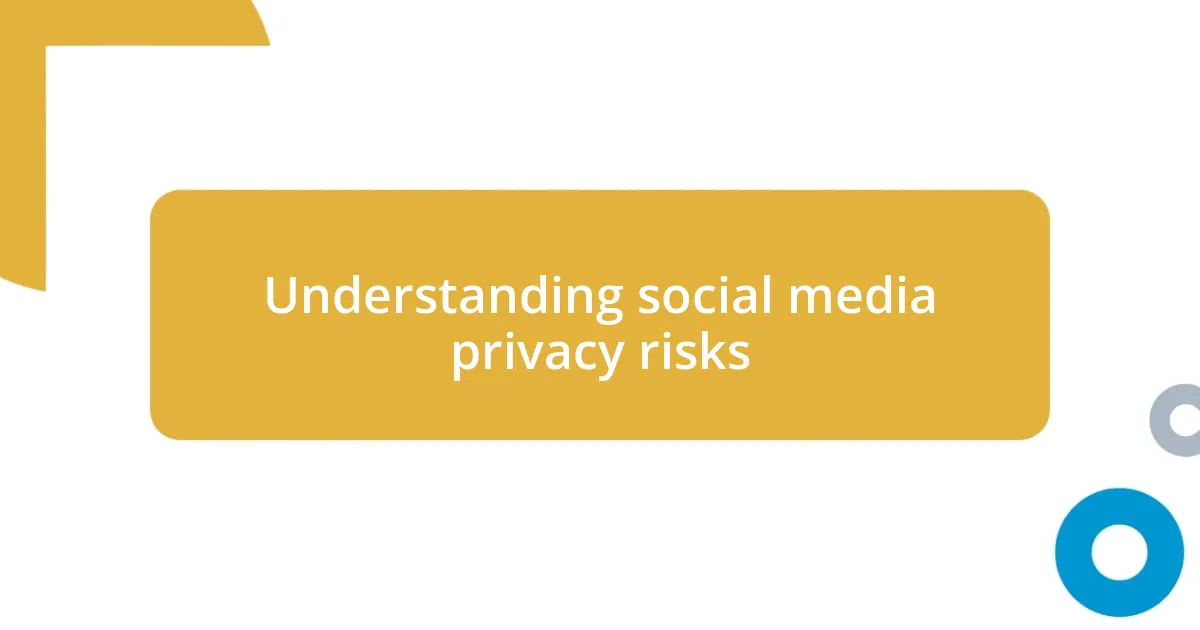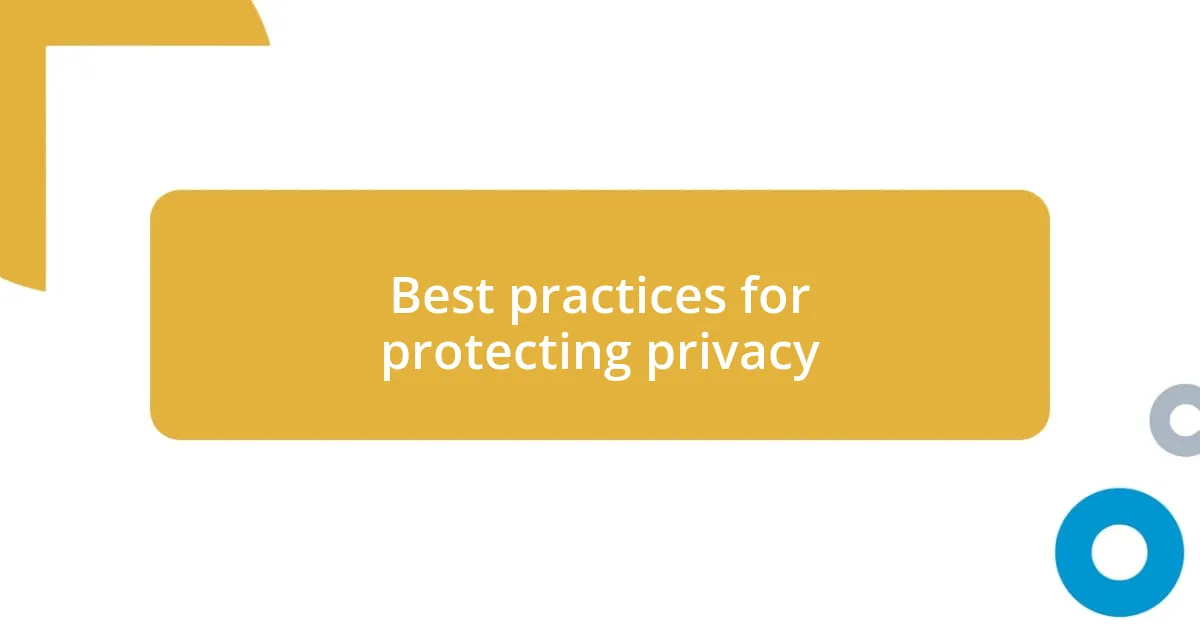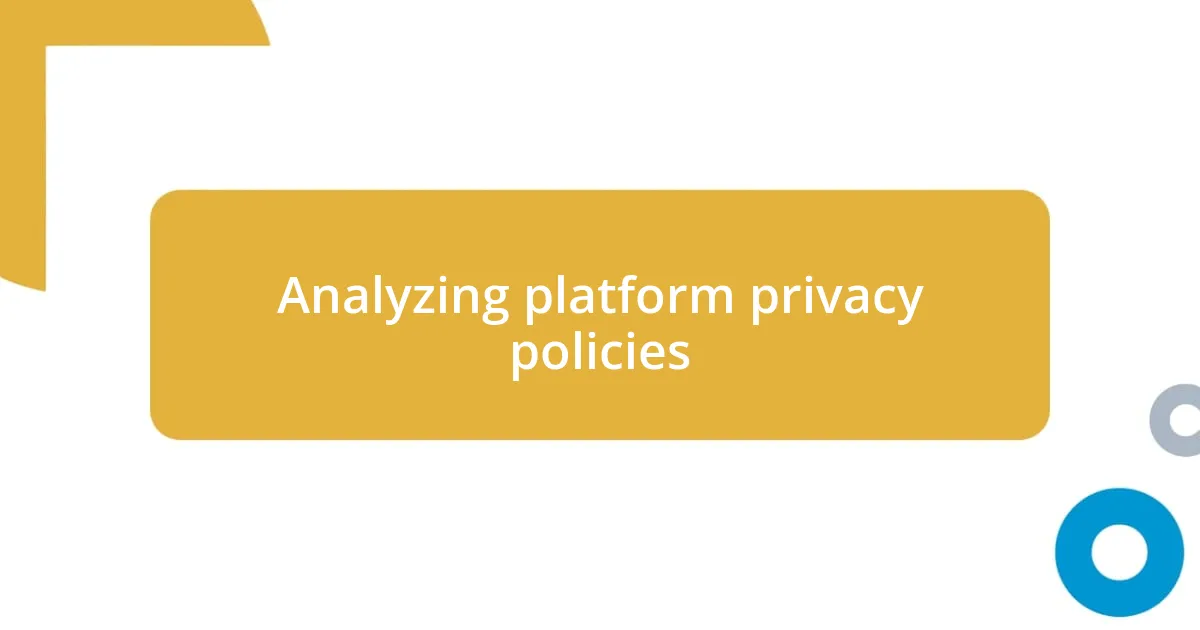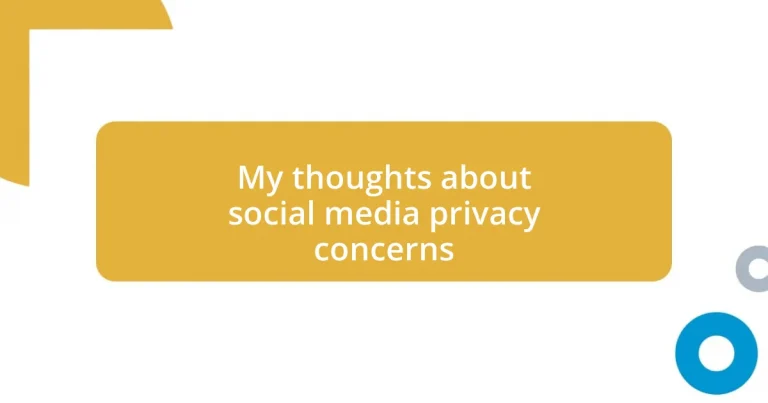Key takeaways:
- Social media privacy concerns arise from the monitoring of user behavior, leading to targeted ads and potential data breaches.
- Regularly reviewing privacy settings and limiting personal information can enhance security on social media platforms.
- Understanding the varying transparency of privacy policies across platforms influences user trust and safety.
- Users should be wary of data monetization practices and consider the implications of their online interactions on privacy.

Understanding social media privacy risks
When I scroll through my social media feed, I often think about the personal data I share without a second thought. It’s unsettling to realize that every post, like, or comment could lead to targeted ads or, worse, data breaches. Have you ever noticed how sometimes the ads seem eerily tailored to your recent conversations? It’s because social media companies are constantly monitoring user behavior, raising significant privacy concerns.
Consider the idea that your most casual interactions online might be analyzed by algorithms and sold to advertisers. This realization hit me when I received a message from a friend about a privacy incident where their account was hacked. Suddenly, the thought of someone gaining access to my personal messages and photos felt all too real. It raises the question: how much do we really trust the platforms that hold our information?
I remember discussing with a group of friends the implications of sharing location tags in our posts. While it can be fun to share where we are, I couldn’t shake off the worry that it made us vulnerable to unwanted attention. Each tag carries a risk, revealing not just where we are, but how often we might be away from home. It’s a delicate balance between sharing experiences and protecting our privacy, don’t you think?

Best practices for protecting privacy
To protect our privacy on social media, it’s essential to take proactive measures. I often remind myself to regularly review and adjust my privacy settings. This simple habit can drastically alter who sees what I share and how much information they can gather about me. I once had a close call when a post I thought was private ended up being visible to a larger audience than intended, leading to some awkward conversations.
Here are some best practices to consider:
- Adjust privacy settings: Regularly check and update settings on each platform to control who sees your content.
- Limit personal information: Share only necessary details in your profile and posts. The less you reveal, the safer you’ll be.
- Use two-factor authentication: Enabling this adds an extra layer of security that makes it harder for unauthorized users to access your accounts.
- Be cautious with friend requests: Only accept requests from people you know. It’s easy for anyone to create a fake profile.
- Think before you share: Consider how a post might be perceived by others and who could potentially take screenshots of it.
In my experience, I’ve found that these steps not only enhance my security but also provide peace of mind, allowing me to enjoy social media without the constant worry of a privacy breach.

Analyzing platform privacy policies
When I dive into analyzing the privacy policies of various social media platforms, I often find myself feeling overwhelmed. Each policy is packed with legal jargon that can be baffling. I remember a time I tried to read through a popular platform’s policy and felt lost in a sea of terms like “data retention” and “third-party sharing.” It’s crucial to take a moment and really understand what those terms mean, right? The implications can range from how long they keep our data to who they’re allowed to share it with.
One thing that stands out to me is the inconsistency among platforms. I’ve noticed that some are more transparent than others, which actually influences my decision to use them. For instance, I felt relieved when a network clearly explained their data deletion process. It made me trust them a bit more. In contrast, another platform left many questions unanswered, making me uneasy about what would happen to my information if I chose to delete my account. Have you ever felt that sense of distrust just from reading a privacy policy? It’s a gut instinct that shouldn’t be ignored.
Looking closer at these policies also reveals how our data is often monetized. They might say they use our info to enhance user experience, but when the language gets fuzzy, I wonder how much of that data is being sold to advertisers. I remember sharing a post that generated a spike in engagement, but later realizing that a significant portion of that was driven by targeted ads based on my interests. It’s a strange mix of feeling valued yet exploited. When I reflect on these policies, I can’t help but ask myself: am I just another data point in their vast system?












